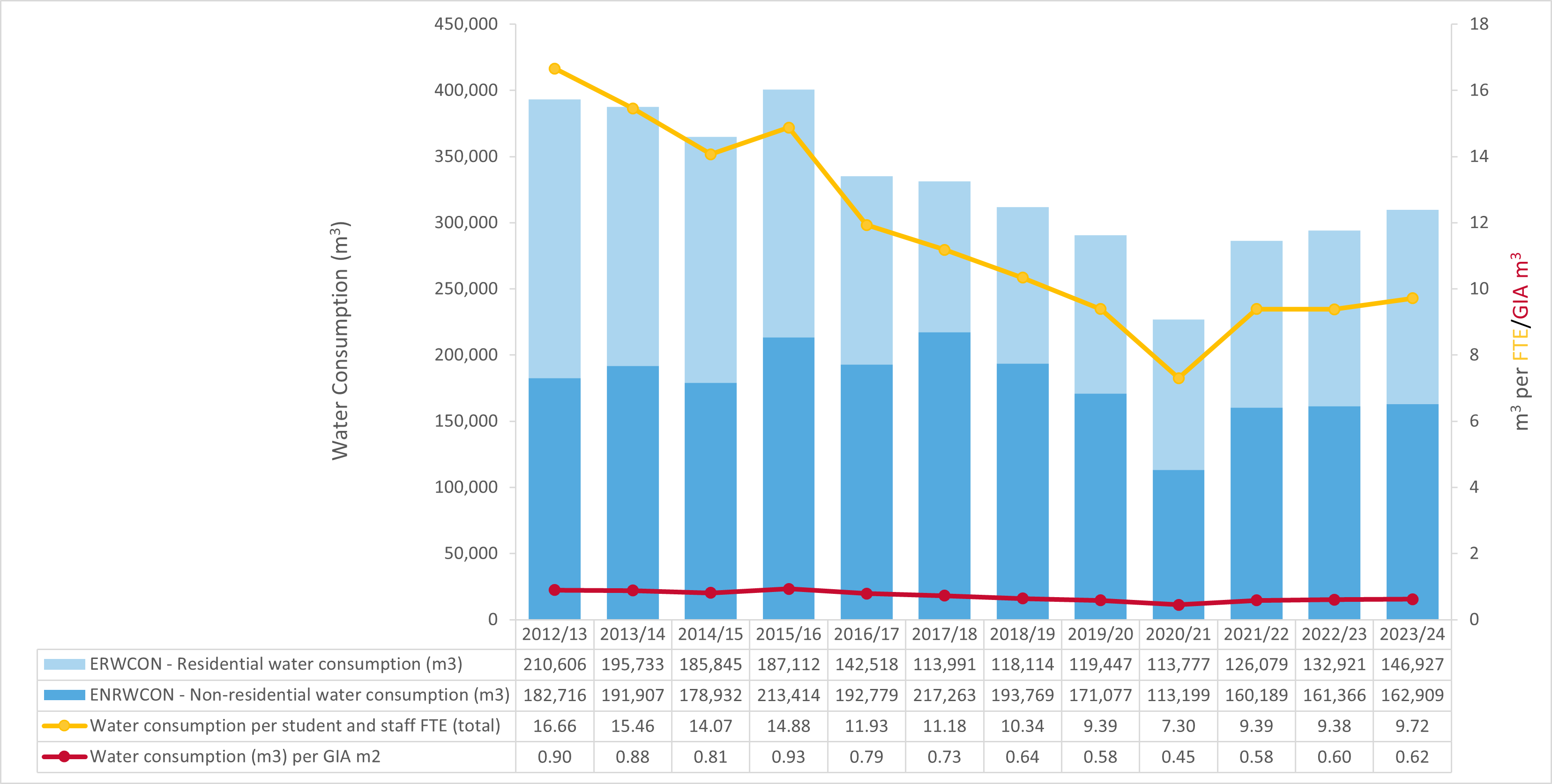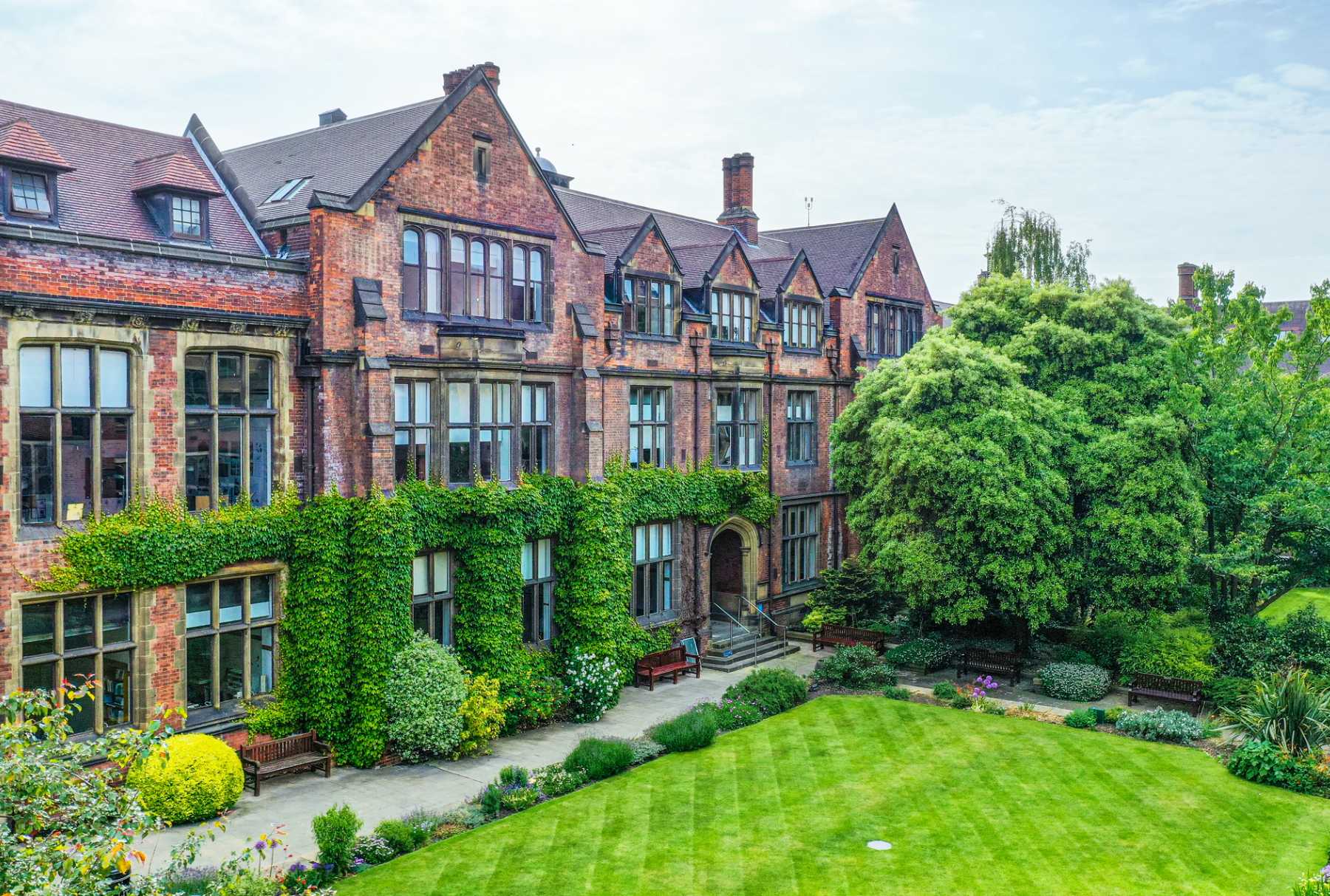Water
Water is essential to life. It plays a part in almost all of our daily activities.
How are we doing?
We measure all of our water consumption from both our residential and non-residential estate annually to see how we are performing.
Consumption has dropped 40% in our residences and 14% in non-residential buildings between 2012 and 2022. Water use per staff/ student has also dropped steadily (excluding 2020/21, when the Covid-19 pandemic caused water usage anomalies), reducing by 45% as the University population has grown!
You can find out what you can do to help reduce water across campus, as well as what we as a University are doing in the sections below.

What you can do to save water
- You can report any water defect, whether it's a dripping tap, overfilling toilet, leaking pipe or water which is too hot, by getting in touch with the Estates and Facilities Helpdesk on ext. 87171 or by emailing ess-helpdesk@newcastle.ac.uk.
- Avoid using hoses for washing floors, unless absolutely necessary.
- Make sure taps, hoses or cooling systems are turned off after use.
Dripping hot water taps waste energy as well as water. Please report all faults to ESS customer services on Extension 87171.
In the lab
- Use recirculating cooling systems.
- Avoid using water vacuum pumps – they use huge quantities of water.
- Don’t use distilled water when it is not necessary.
- Reduce the water supply to water-cooled equipment to the minimum required to achieve adequate cooling.
If you feel you could reduce your lab consumption, but may require funding, please get in touch by emailing sustainable.campus@ncl.ac.uk.
At home
- When purchasing a new toilet, look for a dual flush option.
- Using a shower timer can help reduce water use in the shower – a shower timer is typically set to four minutes.
- Only use a dishwasher on a full load and avoid pre-rinse settings.
- Use efficient dishwasher and washing machine appliances.
- Only fill the kettle with as much water as you need, saving energy as well as water.
- Use any leftover water on houseplants.
What the university is doing to save water
We are:
- developing a water strategy
- our target is to reduce water use to 13 cubic metres per staff and student FTE (full-time equivalent)
- identifying any issues with fixtures and fittings in high consuming buildings
- we're doing this through water audits carried out by students taking an MSc in Clean Technology
- installing push taps to reduce water use
- rolling out aerated shower heads to halls of residence
- this saves water equivalent to an estimated six Olympic sized swimming pools
- trialling retrofit dual flush toilets
- in accommodation bathrooms by the Accommodation and Hospitality service
- full AMR (Automatic Meter Reading) water meter roll-out across the University
- capable of logging water consumption data every 15 minutes
How is the university ensuring water quality?
Trade effluent, or wastewater produced from commercial and industrial activities, can pose a threat to our water resources if not properly managed. In the UK, the Water Industry Act sets the legal framework for effluent discharge, through Trade Effluent Consents.
The University has several Trade Effluent Consents, which are documents that detail how much effluent can be discharged, their components and the strength of these components. This provides a process to ensure wastewater is treated effectively and water treatment plants are not at risk and enables safe water to be provides to residents and businesses of Tyne and Wear.
Legal compliance
As part of our Environmental Management System, we maintain four Trade Effluent Consents, one for each seperate 'Zone' of the University's activities:
Find drinking water
Newcastle University provides access to free, clean drinking water throughout the campus from water points and taps.
You can find mapped drinking water points at the Campus Map on the student webpages.
